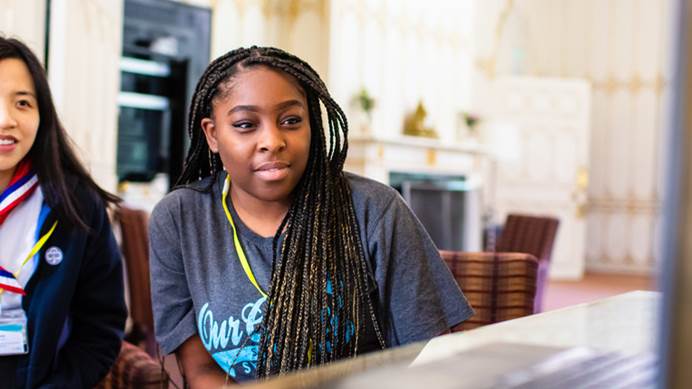Donation acceptance policy
Making sure our fundraising is legal, open, honest and accountable - and in our best interest.
Approved: 12 December 2023
Version: 3
Find out what changed and why in the most recent updates to this policy.
Policy aims and purpose
This policy explains Girlguiding’s approach to accepting, returning, or refusing donations. It applies to all Girlguiding volunteers, members of staff, and trustees at all levels.
It explains:
- The types of donations that Girlguiding can accept.
- When ‘know your donor and donation’ checks should be done on donations.
- When a donation can or must be refunded or refused.
This policy applies to all donations made to Girlguiding, at all levels.
Definitions
- Code of Fundraising Practice – the standards that apply to all fundraising in the UK.
- Donation – a sum of money or gift with cash value that's given to Girlguiding. This doesn’t include gifts in kind given to individual people, but does include gifts in kind given to the organisation.
- Donor – a person or organisation who gives money to a charity.
- Fundraising Regulator – the independent regulator of charitable fundraising in England, Wales and Northern Ireland.
- Girlguiding – the Guide Association and all local units, districts, divisions, counties, countries and regions.
- Relevant charity regulator –the Charity Commission in England and Wales, the Charity Commission for Northern Ireland, and the Office of the Scottish Charity Regulator in Scotland.
- Trustees – defined in law as ‘the persons having the general control and management of the administration of a charity’. At the unit level the leader, assistant leaders and leaders in training are typically the trustees, but could also include administrators who act as treasurers. For other levels it’s usually the voting members of a county executive committee and the members of a division or district committee who are charity trustees. Trustees have specific responsibilities under charity law.
Policy statement
All charity trustees must act in the best interest of their charity at all times. Trustees have the ultimate responsibility for decisions about accepting donations.
Girlguiding is registered with the Fundraising Regulator. All donations must be accepted, refused, or returned in line with the Code of Fundraising Practice.
This means that the vast majority of donations to Girlguiding can and should be accepted. This includes:
- Cash of any amount.
- Publicly traded shares at fair market values.
- Land and buildings.
- Personal property.
- Gifts in kind such as - but not limited to - venues, catering and advertising.
Any level of Girlguiding can receive planned gifts. This includes gifts in wills, which are also called legacies.
Anonymous donations of all kinds can and should be accepted, unless there's anything unusual about the amount or circumstances.
You must not refuse or return donations, except in exceptional circumstances.
Know your donor and donation
Girlguiding takes a risk-based approach to accepting, refusing, and returning donations.
This means you may need to do some checks about a donor or donation before it’s accepted. This is to make sure you:
- Know who the donor is.
- Can assess any risks to Girlguiding if the donation is accepted.
- Can check it’s appropriate for Girlguiding to accept a donation from a donor.
- Are confident the donation isn’t from an illegal or inappropriate source.
- Can check that any conditions attached to the donation are appropriate and can be accepted.
It’s the responsibility of trustees to determine when this is needed, as it will vary by unit and level. This responsibility is often given to other volunteers or, for some levels, members of staff.
Small and regular donations are unlikely to be an issue. But you may need to check donations which you think are unusual. What’s considered unusual will vary by unit and level, as well as by the amount, type, and circumstances of the donation. For example, it may not be unusual for a unit to be given a £1,000 donation. But a donation of £10,000 could be unusual, so checks on the donor and donation must be done. Likewise, for another unit, a £1,000 donation could be unusual.
You must follow the donation acceptance procedure when doing checks on donors and donations.
Refusing donations
You can only refuse a donation when:
- You have reason to believe it could be from an illegal or inappropriate source. You must never accept a donation you have reason to believe could be from an illegal or inappropriate source.
- Accepting the donation would harm your unit or level’s ability to operate, and the risks of accepting the donation outweigh the benefits. If a donor’s values don’t align with Girlguiding’s, this isn’t enough of a reason to refuse their donation. But if accepting their donation might mean you’ll lose the same amount or more from other donors, or that you’ll lose volunteers and members, then refusing the donation may be the right decision.
- You know or have good reason to believe that the donor isn’t able to make an informed decision about donating. You must never accept a donation from someone who you think isn’t able to make an informed decision about donating. Please see the donation acceptance procedure for more information.
Returning donations
Under charity law, and like with all registered charities, you must only refund donations in certain circumstances including:
- If the terms and conditions of the gift allow it to be returned.
- Where the law allows the gift to be returned in particular circumstances, or if there's a compelling moral reason to do so.
- When there are reasonable grounds to believe that the donor lacked the capacity to make an informed decision to make a donation.
Depending on the circumstances, there may be restrictions on whether a donation can be returned. The relevant charity regulator may need to give permission for this.
If you suspect any illegal activity, or have serious concerns about any donation made or offered to you, please contact the HQ fundraising team on [email protected].
Expectations
As a trustee, or any volunteer or member of staff involved in accepting, refusing, or returning a donation, you must:
- Never refuse or return a donation without good reason.
- Be able to explain the reasons why you refused or returned a donation. This includes keeping accurate records of money coming in or out, in line with our finance policy.
- Know your donor and donation, where appropriate.
- Contact Girlguiding Scotland for advice if you're a trustee in Scotland, and have a concern about a donation.







